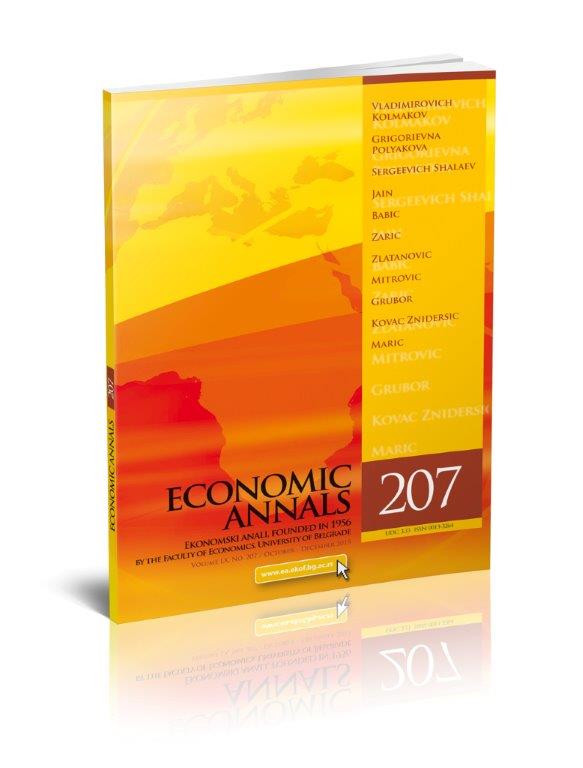YOUNG ENTREPRENEURS′ TRUST DURING THE RECESSION: EVIDENCE FROM SERBIA
##plugins.themes.bootstrap3.article.main##
##plugins.themes.bootstrap3.article.sidebar##
Vojislav Babić
Siniša Zarić
Siniša Zarić
Abstract
This paper deals with the influence of positive trust on business activities, entrepreneurship development, and economic growth. During the global recession, institutions make numerous decisions to find answers to the crisis that influence the behaviour of entrepreneurs. In such situations, significant stocks of trust are of great importance for economy stability and the motivation of future entrepreneurs. In the first section the terms, functions, and types of trust are defined. The second section presents the results of measuring the interpersonal and institutional trust of young entrepreneurs, representatives of future entrepreneurship and business and bearers of networking ideas in Serbia. The results show that young entrepreneurs have a serious trust deficit, which is worrying in people who are potential future business leaders. Only one fifth of the respondents intends to start their own firm when they have finished studying. The reasons most often given are that government economic policy and monopolies hamper starting a business. Most of the respondents thought that the government should be more involved in providing a better environment for medium and small business. Most respondents believed that the Serbian recession was caused foremost by wrong governmental economic policy, followed by corruption.
##plugins.themes.bootstrap3.article.details##
Keywords
Trust, Young entrepreneurs, Trustworthiness, Recession
JEL Classification
O43, L26, A13, G01
Issue
Section
Articles
How to Cite
Babić, V., & Zarić, S. (2015). YOUNG ENTREPRENEURS′ TRUST DURING THE RECESSION: EVIDENCE FROM SERBIA. Economic Annals, 60(207), 49-68. https://doi.org/10.2298/EKA1507049B
How to Cite
Babić, V., & Zarić, S. (2015). YOUNG ENTREPRENEURS′ TRUST DURING THE RECESSION: EVIDENCE FROM SERBIA. Economic Annals, 60(207), 49-68. https://doi.org/10.2298/EKA1507049B

